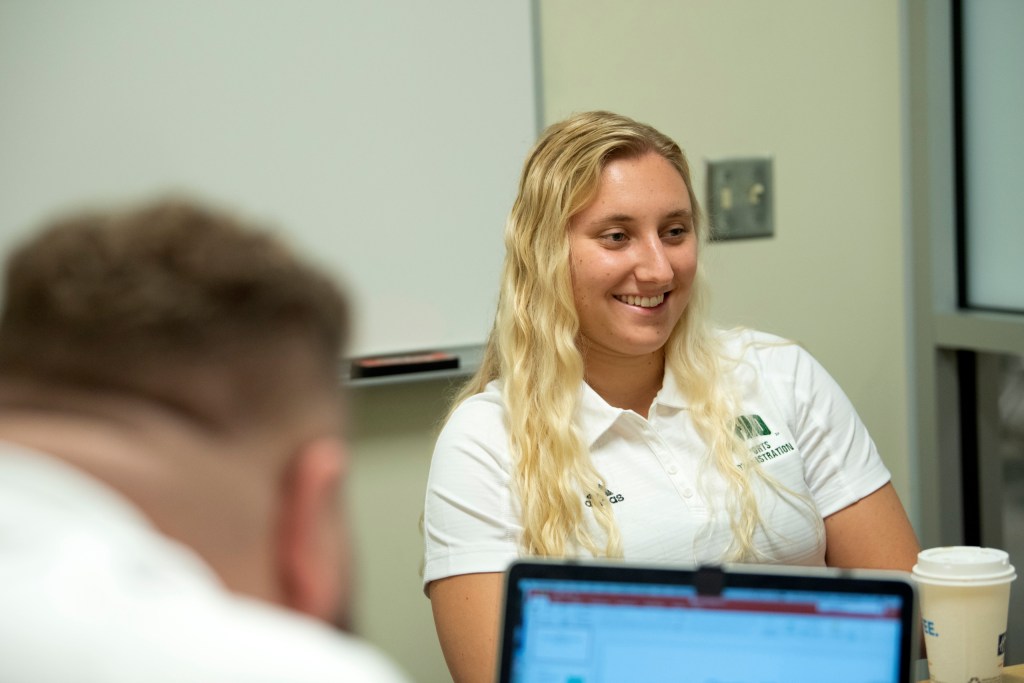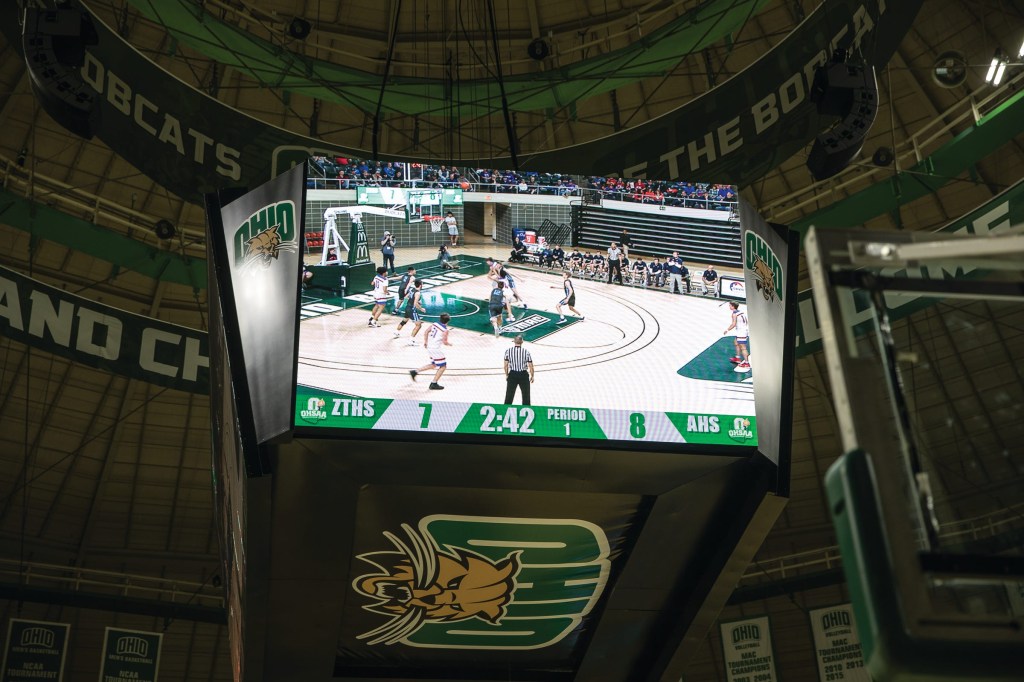
For students of every discipline, including sports business and administration, there have never been more options for continuing education online. According to the National Center for Education Statistics, 28.5% of college students (undergrad and graduate) have taken at least one online course in their educational career. The NCES also states that as of Fall 2014, 24.9% of graduate students earn their degrees exclusively through distance/online education courses.
Just in my own experience as both an undergrad and a graduate student, the idea became appealing to me based on the notion that I did not have to adhere to a specific class schedule. That lack of time constraints allowed me to devote more time and energy to jobs and internships during the day.
Because of that choice, I feel like I’ve been allowed to better develop as a professional while still being able to learn from some fantastic educators. I did however notice some significant differences in being an online student versus being a traditional student. Just to make sure that my own experiences were not isolated incidents, I asked for the opinions of other sports professionals on their experiences as online students as well.
Arguably the biggest benefit to online learning, as I mentioned, is the convenience. Most online programs are designed with working professionals in mind. Therefore, professors will often structure deadlines and workloads that are doable for those putting in the traditional forty and fifty hour work weeks in athletics.
Joey Elledge is currently working towards a master’s degree in sport and fitness management in Liberty University’s online program while working full time in the ticket office at the University of South Carolina. Elledge has experienced first hand the trial of working full time
“It’s challenging, but the convenience of online is what’s really useful. You can do the required work at 11pm after an event, where you can’t just attend a class whenever. What helps me is having access to our office after work hours. Can be really productive in the silence here in the office. Also, just knowing your deadlines and allowing time for editing/proofing is huge.”
Another thing that online student will notice is how much these programs can be a benefit to people who like to learn at their own pace as opposed to that of formal teacher or professor. Sean Lindsey represents a number of professional athletes in family law cases in south Florida and describes earning his MBA from Nova Southeastern University as the best decision of his life.
“The biggest difference for me [between online and traditional learning] was being able to learn my own way and on my own time. I was able to make my own schedule and adapt as I went,” Lindsey states. He also adds “Personally, I like to teach myself and find ways to process the information myself, rather than learn from another individuals way of teaching.”
The last benefit of online learning that I feel needs to be mentioned has arguably been the most important for me over the past couple years: geographic flexibility. While my university is based in one city, I’ve had obligations to both work and family in another. Taking online classes has allowed me to satisfy those obligations without falling behind in school. Deric Manrique, CEO of Tempo Sports and Entertainment in Minneapolis, can attest to this after taking graduate classes online through both Columbia University and Georgetown University.
“Our company is located in Minneapolis so [the geographic flexibility of online learning] allowed me to be present each day.”
On the flip side, there are few areas of the student experience that online learning simply doesn’t satisfy as well. Manrique explains that one of these areas is networking opportunities.
“As a student and small business owner, being on campus allows me to fully maximize the value of the program outside of text books and video lectures. By developing quality relationships with professors and students, business opportunities have opened up that most likely would not have during online classes.”
In that same vein, group projects can be significantly more difficult as an online student. When you are all required to be in the same room at the same time for class, it makes sharing ideas and sharing the workload a little less painless than waiting on every individual to respond to texts and emails or working around several different schedules to get on a phone or video call.
As I’ve gotten further and further into the sports business, it has become easier for me to build on my existing knowledge through resources other than sitting in a class. This is why I think online learning has been great for me at this stage in my life and professional journey.
However, for those just starting to build their knowledge of the industry or trying to branch out into a different area of the industry, I can completely understand how they can benefit from a more hands on experience.
Katie Gwinn Hewitt, assistant director for communications at the University of Michigan, earned both her undergraduate degree and her MBA from Saint Leo University. While her undergraduate degree was earned on campus, her MBA program was online. This provided her with a comprehensive understanding of how the two learning experiences differ.
“There are so many differences and similarities,” Hewitt said, “but I think the biggest difference is that I feel like I was taught more in the on-campus classes. Most of my courses had professors that taught through lecture, and they were able to answer questions and give explanations or examples if my peers and myself needed. But I didn’t have that in-class teaching time when I was pursuing my masters degree online.”
Hewitt adds that, “without those professors teaching me in the way that I was used to, a lot of what I learned was self-guided. I taught myself from the texts and tutorials provided, which I feel actually made my learning experience more interesting. The professors were still there to guide and answer questions, but just in a different way.”
As you weigh your own educational options, just remember that every person learns differently. Because of the sheer amount of options for distance and continuing education, there’s bound to be a program either online or on campus that suits your needs. Do the research, be honest with yourself about your study habits and content knowledge, and don’t be afraid to ask questions. Once more speaking from personal experience: the incredibly supportive members of the sports business community will be more than happy to point you in the right direction.
If you have any input on why you prefer one method of learning over the other, let us know in the comments or on Twitter and Facebook.

















